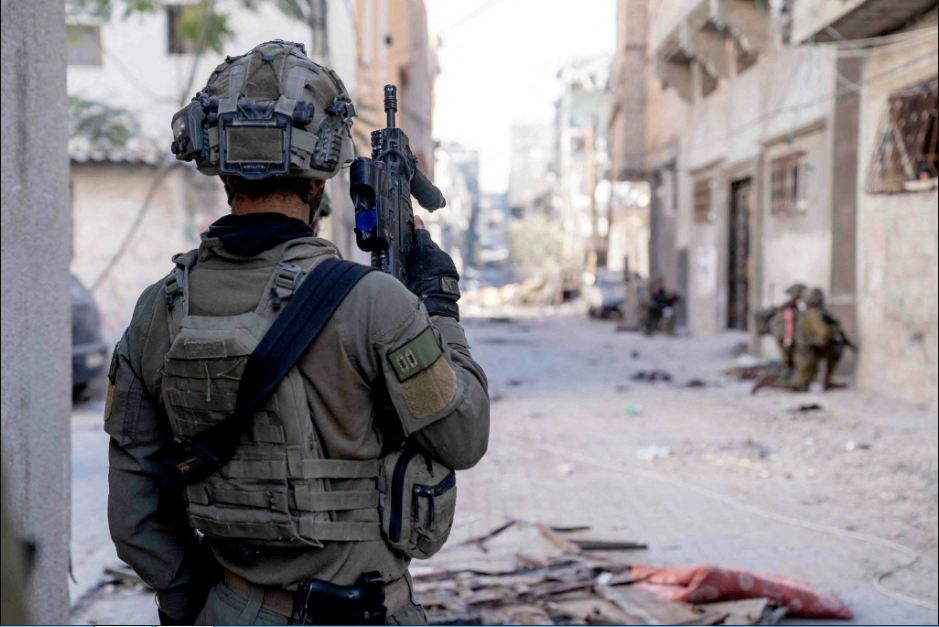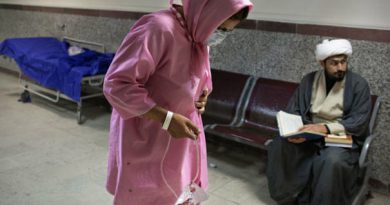Iran converting poor Syrians to Shiism in return for money and food
As a result of the Syrian regime’s arrest of a number of young men newly joined to the Iranian-backed militias, clashes broke out between the Assad forces and these militias in the town of Mayadin in rural Deir al-Zour province last Saturday, which the latter considered harmful to its policy in the region, representing in expending Shi’ite doctrine in rural suburbs of the province and recruiting young guys in the militias.
This came on the backdrop of arresting some recently recruited young men in such militias by the Syrian regime.
According to the network “Deir al-Zour 24” that the regime forces raided the homes of four young men recently joined the militias associated with Iran, arrested them and seized their weapons, on the grounds that the lawsuits filed against them by the people; which angered the militias and considered such actions threats against Iran’s policies to encourage young people to return to Deir al-Zour .
After the militias directly linked to Iran gained control over large parts of the eastern regions of Syria, especially Deir al-Zour, they began building Shiite shrines, welcoming Shi’ite pilgrims from Iraq and Iran, and opening recruitment offices.
Deir al-Zour, Aid and food versus Shiism
An Iranian delegation arrived in the city of Mayadin in the eastern suburb of Deir al-Zour on Monday to demand that its population be under Shiism in return for money and aid. Local sources confirmed that the delegation included Iranian and Iraqi personalities accompanied by an interpreter and met dignitaries during their visit to the city. They called on people to join their doctrine for sums of money and assistance to families that will do so, taking advantage of poverty and poor living conditions suffered by people in general.
The delegation tried to convince the people to look for their children to return to the city and to join the Iranian militias in return for settling their situation and not to pursue them. This is what happened as many young people began to return to the city despite they had been involved in fightings previously against the regime, either through working with the protection YPG militia or fighting at the beginning of the revolution .
Iran seeks by recruiting young people, to form a local army that would be the alternative force if it decides to withdraw from Syria in a scenario similar to what is happening in Lebanon. Tehran has military forces loyal to it under the name “Hezbollah” and through which it manages the region.
The Iranian-backed “Iraqi Popular Mobilization” militias began converting tombs and places in Deir al-Zour into Shiite shrines a few months ago. It has reconstructed the “dome of Ali” in the town of “Suwayyah” and became a shrine as they claimed that this very shrine represents Ali Bin Abi Taleb’s place of setting. Suhail Al-Hassan-led militia have built another shrine called “Ain Ali” in the city of Qouriya, in addition to the Husayniyat (Shiit worshiping places) in the towns of Hittila and Marat.
Months ago, the militias brought in about 50 Iranian families and gave them homes in the central district and near the Basri office in the town of Al-Mayadin in the eastern suburb of Deir al-Zour. This is similar to what happened in the cities of Darya and Muadamyat Al-Sham.
Iran’s plan: a “southern suburb” in Syria
A report by the Washington Institute for Studies on Iran’s efforts to establish a geographical control zone in Syria similar to Hezbollah’s stronghold in the southern suburb of Beirut through its penetration of all military, political, economic, religious and cultural levels.
The report says that there are two tracks for the Iranian penetration in Syria, the first is the purchase of real estate and changing the country’s demographics, and the second to attract poor communities and the implementing of religious and economic programs, which may not be ideologically compatible with Tehran, but lack of viable alternatives.
The report pointed out that Iran has worked in 2018 to make systematic and planned demographic changes to secure the city of Damascus and its environs and the area stretching from the shrine of “Sayyida Zeinab” to the Lebanese border. The Sunni communities were expelled from their homes long ago and replaced by loyalists. Hezbollah and Iran’s Revolutionary Guard took advantage of Law No. 10 issued by the regime and bought properties from their owners who are unable to return home at all.
The report argues that Iran sought to ensure a multi-generational presence in Syria by influencing the educational aspect and opening sections taught in Persian in many educational institutions, including the universities of Damascus, Homs and Lattakia, and providing incentives to those affiliated with these programs in order to increase their demand, such as exemption from university fees , free trips to Tehran and others, as well as language schools and institutes for those below the university level who are also receiving incentives.
Shiism reaches the southern regions
After the regime’s control of the entire southern region of Syria, the Iranian-backed militias began to expand their activity of Shi’ism and youth recruitment. In Daraa, Hizballah opened recruiting offices, particularly in the eastern countryside. Young people were enticed to salaries ranging from $ 200 to $ 350 for those who are over 18 years old. They are recruited and taken to the Izzarah area and subjected to “religion” courses in Shiism. Similar reports suggest that the number of trainers involved in Iranian militias exceeds 1800.
In the city of Zabadani, the militia has renovated several mosques and turned them to Shiite shrines, including “Mahatta mosque” and “Al-Zahra castle” in the western neighborhood, in addition to “al-Ghufran mosque” on the Zabadani – Sargaya road.
In addition to joining people in Shiism, they are working on recruiting young people and Iran began to spread habits in Syrian societies, most notably the Mut’ah marriage. Several offices were opened in the districts of Aleppo governorate to implement this kind of marriage. The first two cases of such marriage were officially announced in Aleppo in July 2018 and in Deir al-Zour in December of the same year.
The Libarasion French newspaper highlighted the deployment of Iran for the marriage of pleasure (Mu’tah) in Aleppo, based on contracts for a period of 15 days compared to 100 thousand pounds as a dowry, and then the newspaper pointed out that the contracts are signed under the supervision of a specialized agency.
This type of marriage exempts the father from recognizing his children and deprives the wife of the right to housing and inheritance and considers adultery to be a temporary contract in contrast to the right marriage.
Article first published on Syria Call.



